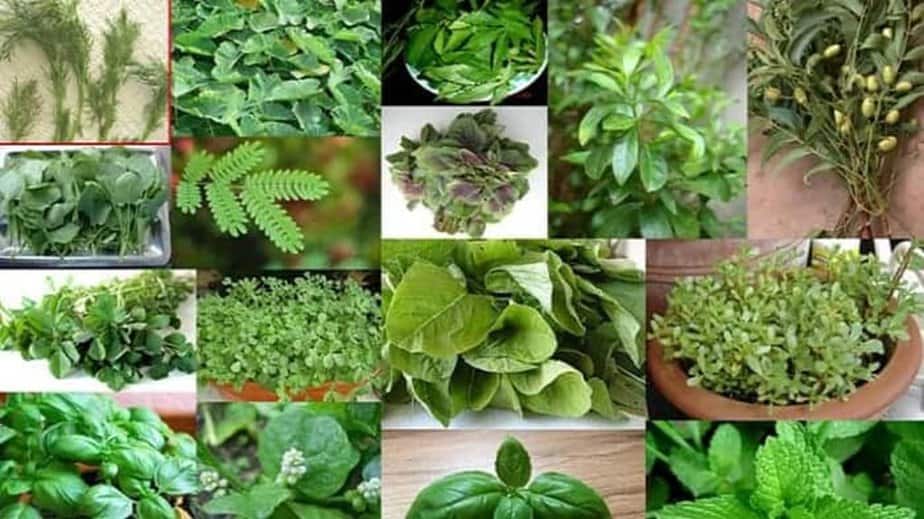Herbs are an integral part of different cuisines across the world. For instance, the soul of Italian and Mexican recipes heavily relies on herbs like oregano, cilantro, basil, rosemary, and a few others. It’s always a few particular herbs that become part and parcel of a cuisine because they are widely grown and easily found in that region.
Most types of fresh herbs are seasonal and when it’s out of season you’ve to find a substitute or use the dried version of the herb. Finding an alternative herb becomes necessary when you run out of an herb or simply want to switch things up.
This article brings home to you the complete list of common herbs and their nearest substitutes.
Herb Substitutions
The flavor and aroma of most dishes heavily depend on the spices and herbs used in them. If you have run out of an important herb just needed in your recipe, you’re likely to find a similar herb right there in your spice rack.
Every herb has something unique about it; the substitute herb will not have the exact flavor of the original herb required in your recipe. Usually, if a recipe calls for fresh herbs, you can swap in the dried version. If the substitute is another herb, then choose the one that has a harmonizing effect in your dish with a similar flavor and texture as the original herb. Always begin with using the substitute herb in half the amount of the actual ingredient specific to your recipe and then adjust it to your personal taste or family.
List Of Common Herbs And Substitutes
If you are out of a fresh herb and don’t have its dried version to substitute, then try to use one of the suitable top four alternatives to each herb listed below. They’re the closest match we have found when substituting one herb for another.
Arugula: substitute watercress, purslane, spinach, or frisee.
Basil: substitute thyme, oregano, parsley, or cilantro.
Bay leaves substitute boldo leaves, juniper berries, basil, or oregano.
Chamomile: substitute lemon balm, passionflower, peppermint, or lemon verbena.
Chervil: substitute tarragon, fennel leaves, parsley, or dill leaves.
Chicory: substitute kola nut, yerba mate, chocolate, or escarole.
Chives: substitute scallion, leeks, shallots, or ramsons.
Cicely: substitute chervil, tarragon, or fennel fronds.
Cilantro: substitute Thai basil, papalo, Italian parsley, or Rau ram.
Culantro: substitute cilantro, papalo, rue, or Thai basil.
Curry Leaf: substitute bay leaves, lime zest, kaffir lime leaves, or lemon balm.
Dill: substitute tarragon, fennel, thyme, or rosemary.
Elderflower: substitute elderberry, triple sec liqueur, acacia flower, or vanilla + orange peels.
Epazote: substitute cilantro, fennel, papalo, or Mexican oregano.
Holy Basil: substitute Mediterranean basil, Thai basil, oregano, or rosemary.
Hoja Santa: substitute tarragon, flat-leaf parsley, or cilantro.
Kaffir Lime Leaves: substitute bay leaves, lime zest, lime juice, or lemon thyme.
Lavender: substitute rosemary, Herbs de Provence, Parfait d’Amour, or lemon thyme.
Lemon Balm: substitute lemon zest + mint leaves, lemongrass, lemon verbena, or Makrut lime leaves.
Lemon Basil: substitute basil, Thai basil, thyme, or mint.
Lemon Thyme: substitute lemon zest + thyme, lemon verbena, lemongrass, or lemon balm.
Lemon Verbena: substitute lemongrass, lemon balm, lemon basil, or lemon zest.
Lemongrass: substitute lemon zest, Kreung, Kaffir lime leaves, or lemon balm.
Licorice: substitute licorice extract, anise, star anise, or sambuca.
Lovage: substitute celery, lovage seeds, fennel, or parsley.
Marjoram: substitute Italian seasoning, oregano, thyme, or sage.
Mexican Oregano: substitute marjoram, regular oregano, lemon verbena, or cilantro.
Mint: substitute basil, marjoram, or peppermint extract.
Oregano: substitute marjoram, thyme, sage, or basil.
Parsley: substitute cilantro, chervil, celery, or carrot green.
Peppermint: substitute peppermint extract, water-mint, spearmint, or basil.
Rosemary: substitute thyme, sage, marjoram, or tarragon.
Safflower: substitute turmeric, saffron, annatto seeds, or curry powder.
Sage: substitute poultry seasoning, marjoram, thyme, or rosemary.
Savory: substitute thyme, sage, marjoram, or herb mixture.
Sorrel: substitute arugula, rhubarb, mustard greens, or spinach.
Spearmint: substitute regular mint or peppermint.
Stevia: substitute white granulated sugar, agave nectar, erythritol, or sucralose
Summer Savory: substitute thyme, sage, marjoram, or herbal blends.
Tarragon: substitute chervil, fennel seeds, bay leaf, or angelica.
Thai Basil: substitute regular basil, Italian seasoning, spinach leaves, or thyme.
Thyme: substitute marjoram + parsley, Italian seasoning, tarragon, or summer savory.
Winter Savory: substitute summer savory, thyme, sage, or marjoram.
Fresh and Dried Herbs Substitution
The thump rule of swapping dried herbs for fresh herbs is to use 1/3 of the amount called for in the dish. For example, if your recipe calls for one tablespoon of fresh mint, then add 1 teaspoon of dried mint. In case of substituting fresh herbs for dried herbs, the same rule applies in the reverse order: if a recipe calls for 1 teaspoon of dried rosemary, add 1 tablespoon of fresh rosemary.
Experts recommend adding fresh herbs to your dish at the end of cooking or after cooking. However, dried herbs require some cooking for the better release of their flavor: add dried herbs to your dish at the earlier part of cooking.
Some dried herbs have a better flavor than fresh herbs. Herbs like oregano, marjoram, rosemary, fennel seeds, thyme, or rosemary taste better and stronger when they are dried.
Fresh herbs are best in raw dishes like salad, and also for garnishing. Some herbs like parsley, chervil, chives, and tarragon lose their flavor when dried.
Read next:
Complete List Of Spice Substitutes
Dried Herbs Vs Fresh: Differences And Similarities
